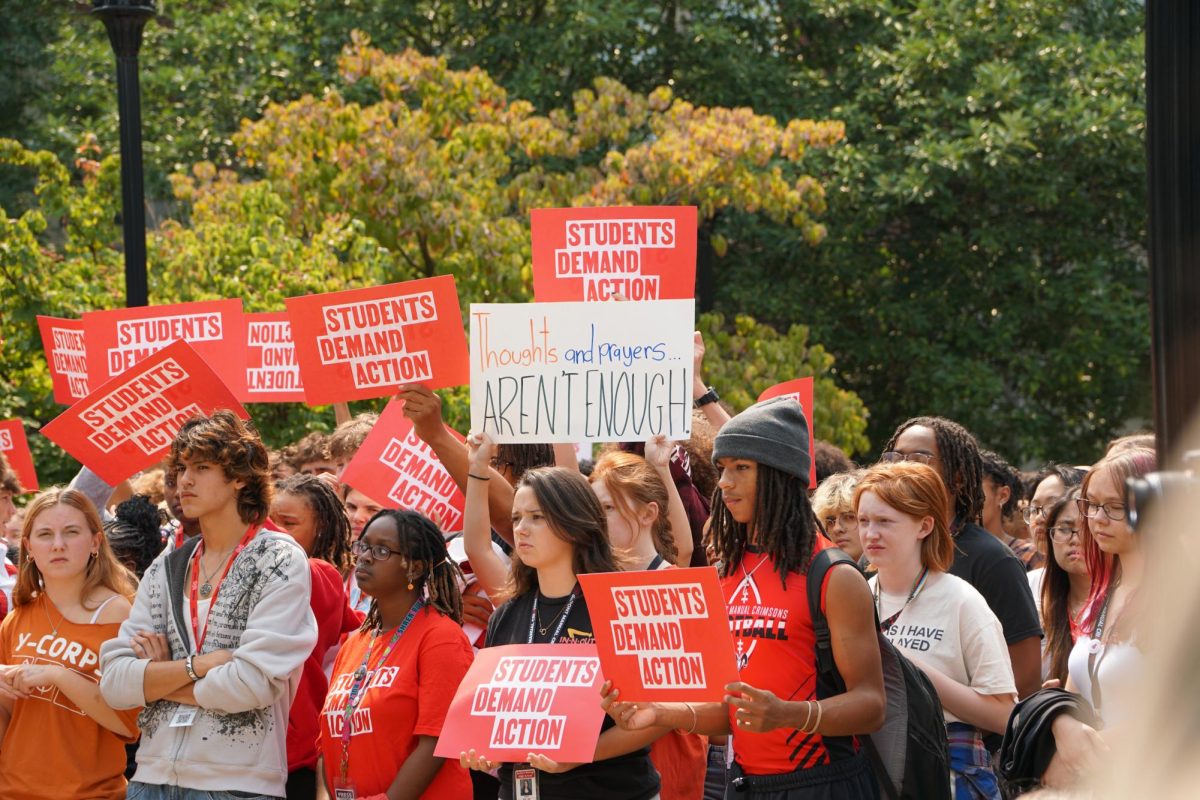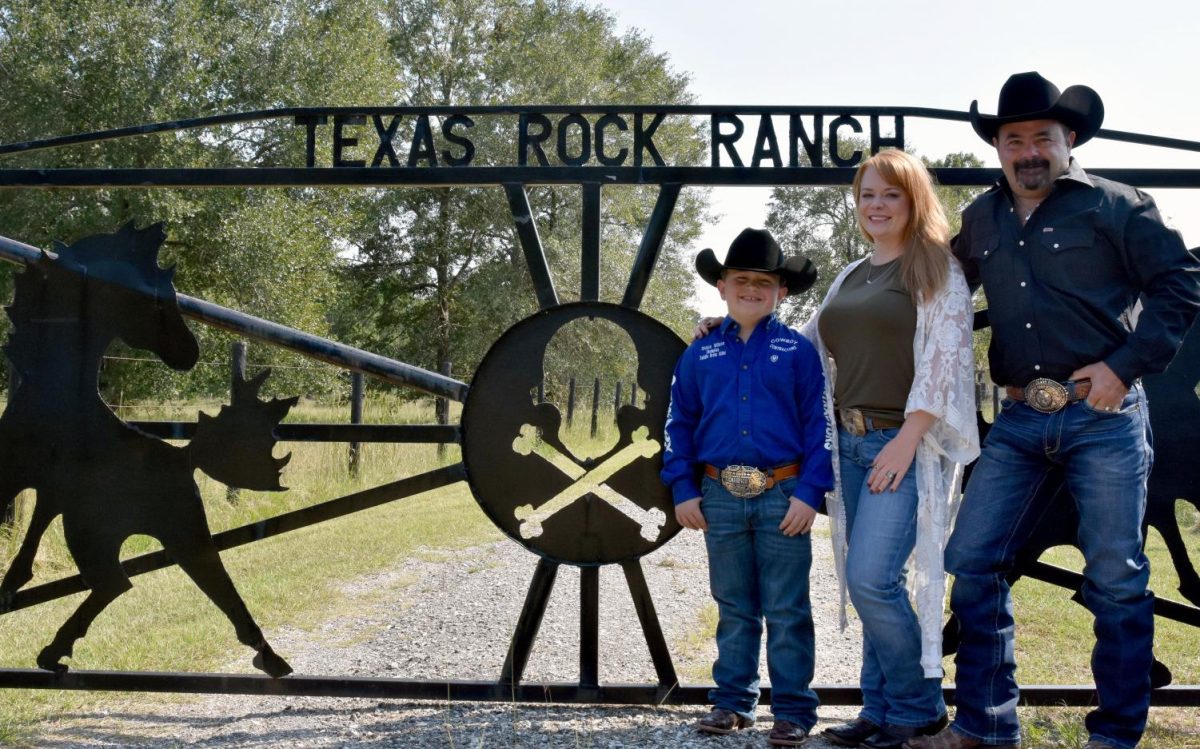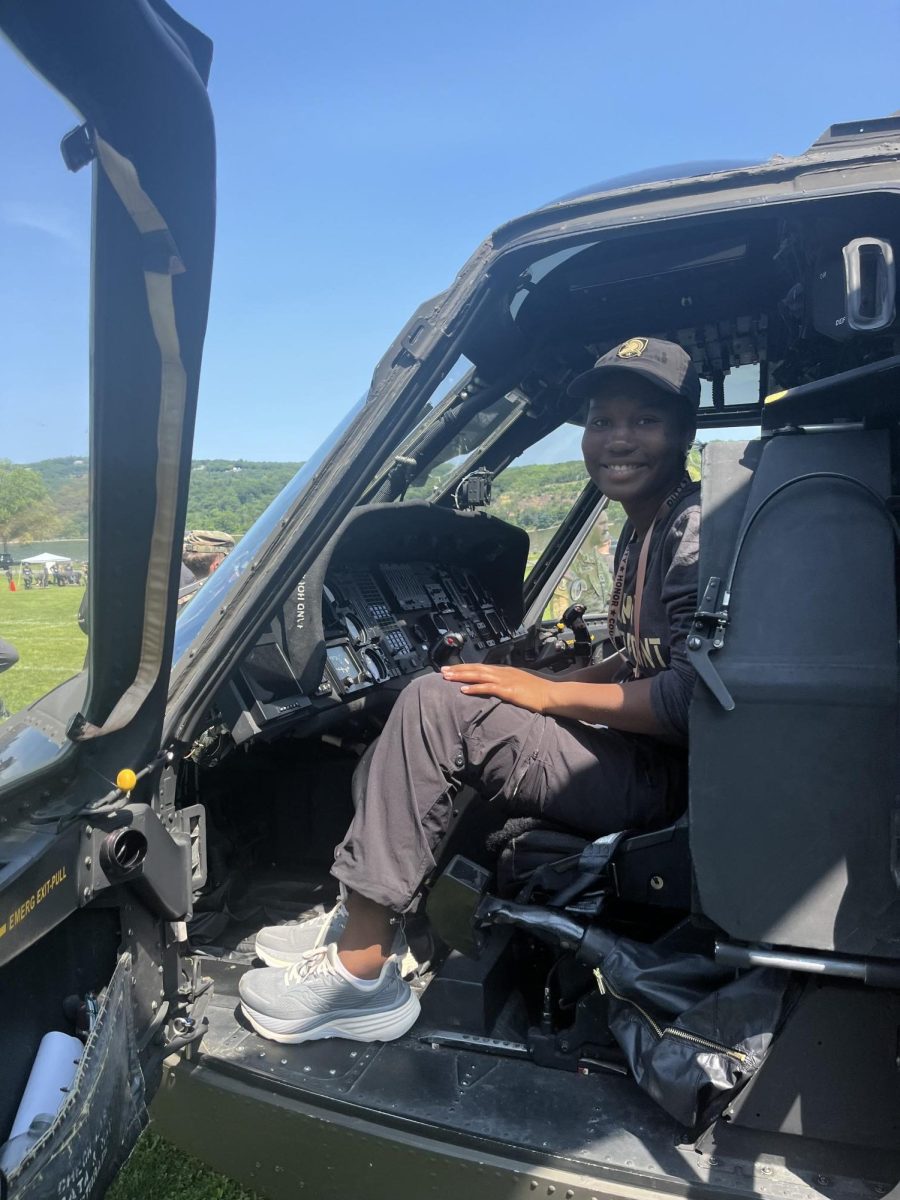Mia Bravo (‘24) entered her first class of the day at the University of California Los Angeles (UCLA) on the morning of Wednesday, January 8th. But just 10.3 miles northwest, increasingly strong winds were spreading a wildfire across the Palisades and towards UCLA at a startling rate. Back in Mia’s classroom, students began having panicked conversations about the smoke and fire they could see from their dorm rooms and anxious discussions about if UCLA would issue an evacuation order. Amidst all the noise, no one seemed to notice their professor in the front of the classroom.
Eventually, Mia and her classmates focused their attention on their professor, who, carrying a briefcase in one hand and a small suitcase in the other, stood still. Mia would soon learn that his briefcase and suitcase carried all the clothes and personal belongings he could pack before fleeing his house, which the Palisades wildfire had reached 30 minutes later — burning it down completely. Mia described the moment she and her classmates learned about their professor as “emotionally jarring” and “very upsetting.”
Mia is one of the many Bishop’s community members who have been affected by the Los Angeles wildfires since Tuesday, January 7, 2025, when the Palisades wildfire began. In the three weeks since then, multiple wildfires — the largest being the Palisades wildfire on the coast and the Eaton wildfire farther inland — have spread across Los Angeles, fueled by 100 mile per hour Santa Ana winds and unusually dry conditions. The wildfires have burned over 40,000 acres, forcing roughly 200,000 people to evacuate their homes and killing at least 27 people, according to NBC News.
For Mia, it was later that same Wednesday when UCLA notified students that classes would be canceled. She described what followed as “a frantic scene” of students packing bags and rushing away from campus, worried that UCLA had waited too long to issue an evacuation order. At that moment, Mia decided to pack her bag, leave UCLA, and come to San Diego. She felt more “scared and uncertain” that afternoon than at any other point during the Los Angeles wildfires.
In addition to Mia, there are many other recent Bishop’s graduates who had to evacuate due to the wildfires. In fact, there are 16 current Bishop’s graduates attending either UCLA and Pepperdine University, both colleges that were evacuated because of their proximity to the Palisades wildfire.
Many current Bishop’s students have been affected by the Los Angeles wildfires as well.
For Kaitlyn Kuo (‘28), who moved from Los Angeles this year, the wildfires have been particularly traumatic. While Kaitlyn moved with her mother to San Diego last summer to attend Bishop’s, her brother and father still live in Los Angeles. Every weekend, she and her mother drive to Los Angeles to be with their family and friends. Because of this, Kaitlyn said that her life is “still rooted” in Los Angeles despite having moved to San Diego.
“My house is currently still standing, but every day brings new updates — friends and former teachers now homeless, my favorite childhood spots destroyed, and me anxiously tracking the wind forecasts, hoping the fire won’t get any closer,” Kaitlyn explained. “It’s really easy to overlook tragedies like this when they seem far away, but it hits differently when people you know are affected.”
Emma Banaie (‘26) and Isabelle Banaie (‘27) also have family in Los Angeles. When the Palisades wildfire reached Malibu and continued moving towards Santa Monica, where Emma and Isabelle’s cousin lives, their cousin and his family decided to come stay with Emma and Isabelle in San Diego.
Emma explained that a day after her cousin arrived, news came that Santa Monica was under mandatory evacuation due to the fires rapidly approaching. “I saw as they anxiously watched the news and hoped everything would be okay. I saw genuine fear on their faces as they were uncertain about the future,” she said.
Emma and Isabelle’s cousin is now safely back in his house in Santa Monica after the wildfire was cleared. Nonetheless, the experience was frightening for Emma, who reflected, “Having someone so close to me be directly affected by these fires truly shows how near they are to our community. It’s a powerful reminder that we often don’t realize how vulnerable we are to such events until they hit close to home.”
Natalie Marvin (‘25) had a similar experience. Her aunt also lives in Santa Monica, and was forced to evacuate on Tuesday, January 14th. She fled to San Diego to stay with Natalie’s family for many days.
“My aunt described how horrifying it was to get an alert on her phone, giving her no time to pack up and leave behind all the belongings she couldn’t fit in her car,” Natalie explained. “She described how scary and stressful it was to pack up her whole life into a few bags, not knowing if she would ever see her home again.”
Natalie’s aunt is now safely back in her apartment. However, many of the houses and schools of her coworkers, friends, and neighbors have burned down. She explained that the Los Angeles community as a whole is “mourning during these challenging times.”
“I feel blessed that they were able to come stay with us and we could provide them with comfort and security during these times,” Natalie reflected. “I can’t imagine all of my childhood being turned to ashes, and it’s so hard to hear the stories of kids my age going through this.”
Sasha Jessen (‘28) is another student affected. Her family knows many people in Los Angeles who have lost their houses from the wildfires, including a “really good” friend. Furthermore, Sasha’s family has more friends across Los Angeles who will not be able to return to their houses for months due to smoke damage.
Sasha said her friends in Los Angeles, especially the ones who have lost their houses permanently, are “in disbelief” and “very overwhelmed.” She added that despite this, her friends have acknowledged the incredible community in Los Angeles that has quickly “comforted and supported” thousands of people significantly affected by the wildfires.
“My family and I feel grateful that our friends and family are still alive,” Sasha reflected. “We also feel an extreme amount of sadness from their property loss, their grief, and their hardship. We know they have a long road ahead of them in order to rebuild their homes and lives.”
In addition to students, faculty members have also been affected by the Los Angeles wildfires.
Notably, Mr. Topher Carroll — the husband of Science Department Chair Dr. Lani Keller — watched as his mother’s house burned down, many of his friends’ houses and schools were destroyed, and almost all the landmarks of his childhood disappeared.
“The house I was born in, the houses of my friends that I used to play at when I was a kid, the park that I used to play sports at as a kid, the restaurants my family used to go to, the elementary school and the high school I went to, and really just everything that served as an important place in my childhood has been significantly affected if not wiped off the map at this point,” Mr. Carroll explained. “I had loved coming back to the Palisades to visit the places of my childhood. The idea that it is now all gone is really jarring to think about. I am still processing it all.”
Mr. Carroll also shared a story about his friend whose daughter’s school was destroyed. After losing her kindergarten and first grade years to COVID-19, Mr. Carroll explained that she will now lose at least the rest of her fifth grade year, if not her sixth grade year as well, to the Palisades wildfire.
“That is really upsetting because elementary school is supposed to be this really wonderful time of our lives that is simple and straightforward. It is supposed to be when we make a lot of friends and don’t have a lot of worries,” Mr. Carroll began. “Between COVID-19 and now the wildfires, she did not get that elementary school experience and has really been through the worst of it. It is a really difficult and upsetting situation for her and all these kids that have lost their schools and parts of their childhoods.”
Sydney Chan (‘24) had a similar experience of watching her childhood go up in flames. She used to live in the hills of east Los Angeles, close to where the Eaton wildfire ignited. For five years, starting when she was just two years old and ending in elementary school, Sydney attended the Oak Knoll Montessori School. It was the only school she went to before moving to San Diego.
Two weeks ago, Sydney watched from her phone as Oak Knoll Montessori School was “engulfed in flames.” The short video had been sent by her former classmate and friend. Sydney said it was “surreal and unimaginably painful” for her to watch a place that held such a significant role in her childhood burn down.
Sydney, now a freshman at Syracuse University in upstate New York, described feeling “super helpless” because she is so far away. Sydney feels upset that, other than contributing to fundraising efforts, she cannot do much to directly support the east Los Angeles community. “It’s just all really heartbreaking,” she said.
The direct effects of the Los Angeles wildfires on the Bishop’s community has prompted reflection for many.
“I think what has hit me the hardest was thinking about if my family was in the situation that my professor is in,” Mia said. “I don’t know what I would do if I had lost my childhood picture books and every single thing I was not able to pack into a car in a half hour. I wouldn’t even know where to begin.”
Mr. Carroll — who explained that he “has never been a nostalgic person” — reflected, “This whole experience has caused me to look back and think about the special community I was lucky to grow up in. Losing so much of it is something that has hit me much more deeply than I could have expected.”
Many others have also found a silver lining in the Los Angeles wildfires.
“Although it is such a depressing situation, these wildfires really show how people can come together to help those in need,” Emma said. “Not only do I know people from San Diego helping, but I also know people from across the country donating money to support Los Angeles.”
Mia expressed a similar sentiment, adding, “While the wildfires were so traumatic and upsetting, it has been really heartwarming to see the inspiring response by the Los Angeles community. Seeing people open their restaurants to serve free meals for others and give donations to them demonstrates how incredible this community is.”
Sasha agreed with Mia, saying, “When something like this happens, I immediately feel sad and worried for everyone going through it. But then when other members of the community offer to open their garages and workplaces to gather and organize donations, I feel inspired to help in any small or big way I can.”
Sasha is now co-leading a school-wide donation drive to support relief efforts in Los Angeles. “It is so important for our community to come together and help the people affected by the wildfires because we have a wide variety of resources that are available to us and needed in Los Angeles right now,” she concluded.
This story was originally published on The Tower on January 23, 2025.






































